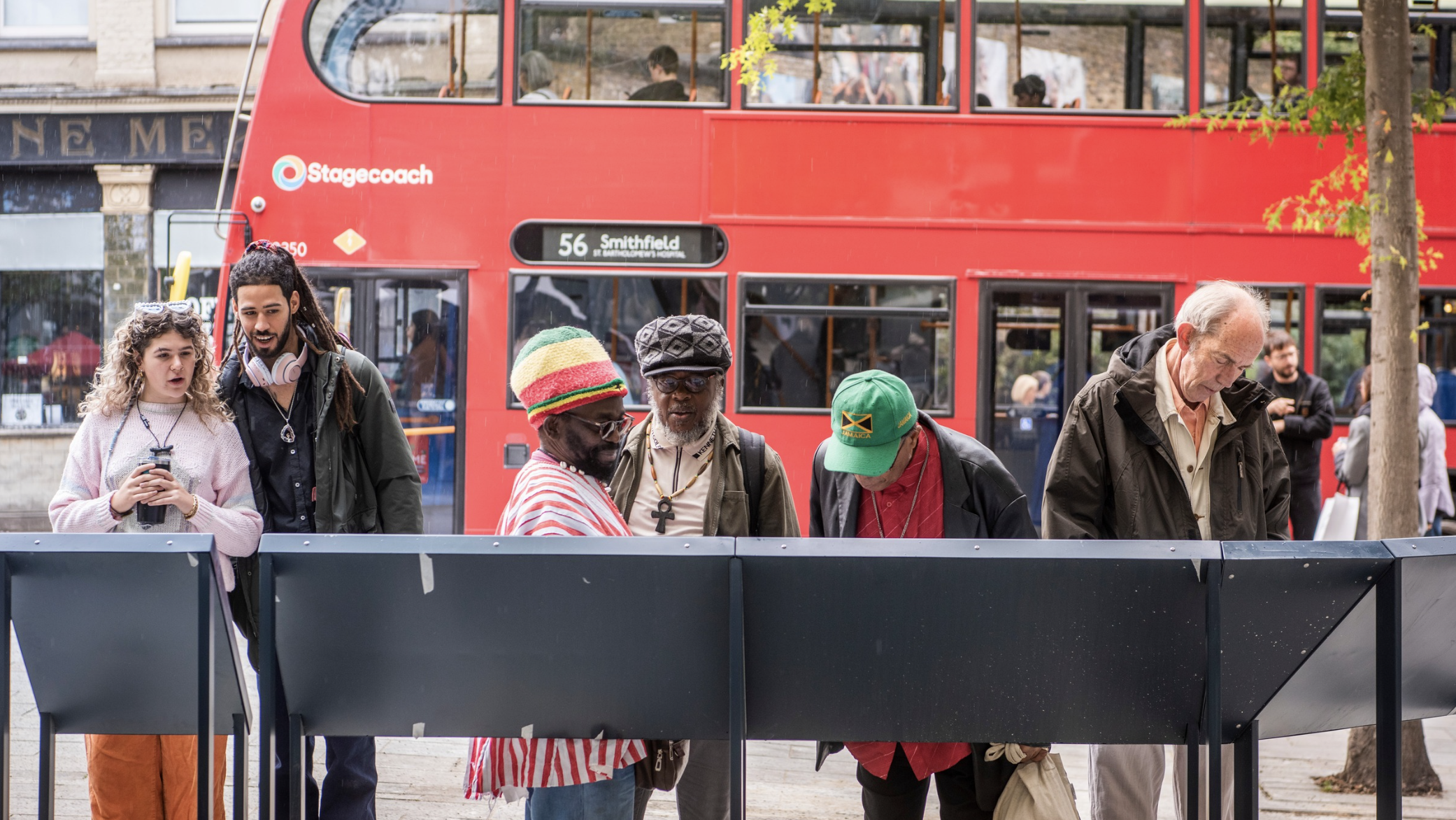Honouring Sir Collins’ legacy
Dalston Square reopened with a community event that set out to reclaim the area’s cultural heritage
Charles Collins, also known as Sir Collins, stands outside Sir Collins Tower
The Sir Collins Legacy event was a celebration of the artists, entertainers and night clubs that defined the area from the 1960s through to the 1990s, pioneering music genres and performance styles that continue to shape British music today.
Charles Collins – also known as Sir Collins – was a music producer, night club owner, community organiser and campaigner.
He was involved in the founding of the Four Aces night club in the derelict Dalston Theatre in Dalston Lane and played an important role in Hackney-based community initiatives during the 1980s and 1990s.
In 1981, his teenage son Steve Collins was one of 14 young people who lost their lives in the New Cross fire. This tragic event set Sir Collins on a path to seek justice and establish lasting memorials for the young people.
His campaigning spirit was called into action again with the threat of demolition of the theatre in the 2000s; working closely with community activists from Open Dalston to try and secure the future of the building, which he had occupied since his arrival in Hackney in the early 1960s.
The theatre, built in 1886, and originally called the North London Colosseum, had always provided entertainment for local people: from circus and music hall acts to reggae and rave performers.
It was home to many firsts – from performances by reggae pioneer Desmond Decker in 1968, to The Prodigy in 1991.
The new history panel, on Dalston Lane, narrates Dalston Square’s musical legacy
Although the campaign to save it was ultimately unsuccessful, Sir Collins worked closely with the Council to negotiate the safe transfer of New Cross fire memorial trees, planted in the Four Aces’ gardens, to Hackney Downs park.
He also worked with Barrett Homes to name the pathway and blocks with meaningful names, such as Blues Street (representing Blues parties) and Dunbar House (after the manager of the Four Aces, Newton Dunbar).
Sir Collins’ son Gary Collins carried on his father’s work through the family’s Older Generation Younger Generation organisation.
The result is the installation of an information board, 10 commemorative stones and the New Cross fire memorial garden at Dalston Square, which will ensure the cultural heritage of the theatre, and its many phases of use, is not forgotten.
Members of the community who collaborated for the occasion included Anthony Brightly, of reggae stars Black Slate, Newton Dunbar’s daughter Natalie Dunbar, Reggae Museum founder Colin Robinson and members of Open Dalston.
The history panel is on Dalston Lane, close to the entrance of the Dalston CLR James Library, and the stones are close to the eastern end of Blues Street, in Dalston Square itself.
Residents can search the Sir Collins Collection using the Hackney Archives online catalogue (reference D/F/SCO).


